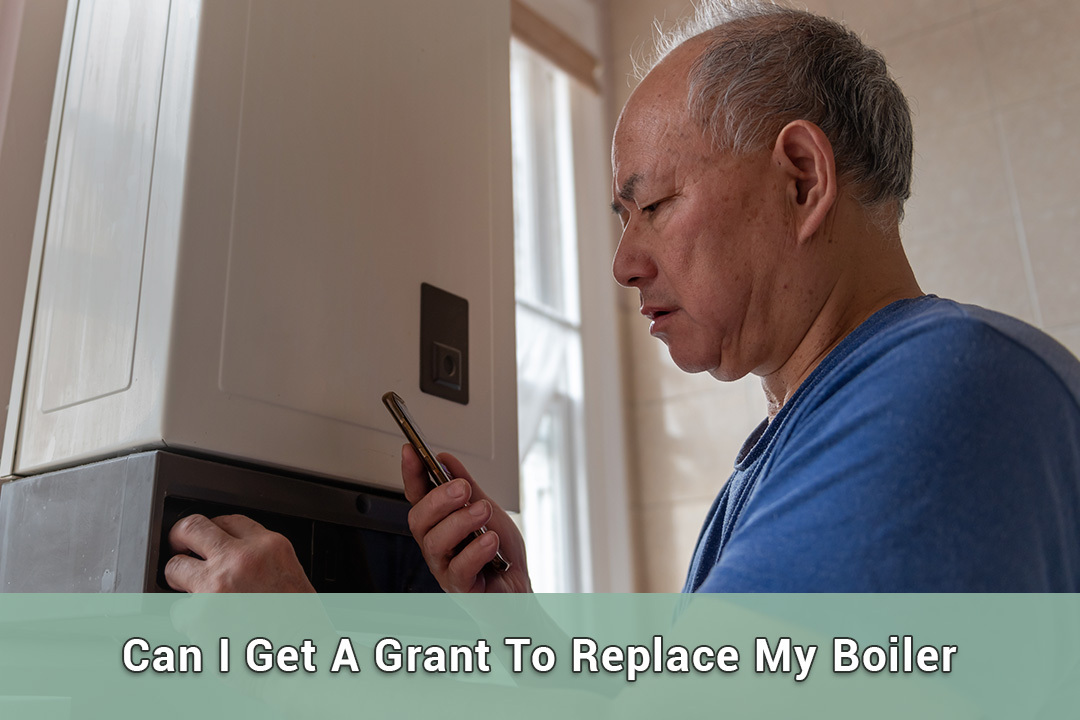Table of Contents
Have you ever noticed strange noises coming from your boiler? It can be quite unnerving, especially if you’re not sure what’s causing the noise. But fear not, in this blog, we will explore the different types of boiler noises, the causes behind them, and the steps you can take to address the issue.
Whether it’s a banging noise, gurgling sound, or vibrating boiler, understanding the significance of these boiler making noises is crucial for the smooth operation of your heating system. So, let’s dive in and find out why your boiler is making noise.
Recognising Different Types of Boiler Noises
When it comes to boiler noises, it is essential to understand the different types of sounds you might hear. These noises can range from banging sounds to gurgling noises and even vibrating sounds. Recognizing these noises is the first step towards identifying the cause and finding a solution. So, let’s take a closer look at each of these noises and what they could mean for your boiler system.
The Significance of Banging Noises
One of the most common noises a boiler can make is a loud banging noise. This noise, often described as a “kettling” sound, is usually caused by trapped air or issues with the circulation pump. When air gets trapped in the central heating system, it can cause the water pressure to fluctuate, leading to banging noises.
Another possible cause is a faulty pump, which can cause the water in the heat exchanger to overheat, resulting in loud banging noises. If you have a boiler making banging noises, it is important to address the issue promptly, as it can lead to further damage and affect the efficiency of your heating system.
Understanding Gurgling Sounds
Gurgling sounds coming from your boiler could mean that there is a problem with the water pipe or air is getting stuck. Gurgling sounds are often a sign that you might be in danger. Gurgling sounds could be caused by air getting stuck in the system and stopping the flow of water.
If the condenser line is broken, water could also back up and make gurgling sounds. Any bubbling sounds coming from your boiler should be looked into and fixed to make sure your heating system works safely and efficiently.
Deciphering Vibrating Noises
If the noise from a boiler that is moving is loud and never stops, you should be worried. Some buzzing sounds might not be harmful, while others could be signs of deeper problems that need to be fixed. For example, movements from outside pipes can make the boiler shake, but these sounds are usually harmless.
Still, pipes that aren’t tightened may make noises that sound like they’re moving; the noise may need to be stopped by fixing the pipes. If your boiler is making a loud rumbling sound, you should talk to a professional to figure out what’s wrong and choose the best way to fix it
Diagnosing the Causes of Boiler Making Noises
After talking about the different kinds of boiler noises, it’s important to know why they happen. To fix the problem, you need to find the source of the noise. A lot of the time, loud boiler noise is caused by low water pressure, moving air, or problems with the flow of water. If you know these things, you can fix the problem and make sure the boiler system works well.
Reasons Behind Banging Sounds
There are several possible reasons why your heater is banging. The heat exchanger could be making loud banging sounds; it could rust or break down over time. Low water pressure could be the reason for the banging sounds coming from the boiler as water moves through the system. A broken pump is another common cause of beating sounds.
This can make the water flow unevenly, which makes the noise loud. If you want to make sure your boiler works safely and correctly, look into where the banging sounds might be coming from and fix them.
Causes for Gurgling Noises
There are a number of reasons why your boiler might be making bubbling sounds. Gurgling sounds are usually caused by air getting stuck in the system and making it hard for water to move through. Gurgling sounds could also come from hot water in the boiler, especially if it is not moving around properly.
When a limescale builds up in the heat exchanger, it stops the flow of water and makes a hissing sound. This is called boiler kettling. If you hear gurgling sounds, you should figure out what’s making them (like trapped air or kettling in a boiler) and then fix the problem.
Triggers for Vibrating Noises
Vibrating noises in your boiler can be triggered by various factors. One possible cause is faulty pump bearings, which can cause the circulation pump to vibrate, resulting in noise. Loose pipes can also cause vibration, as they shake when water flows through the system.
In some cases, external factors such as nearby construction or traffic vibrations can affect the boiler, causing it to vibrate. It is important to identify the cause of the vibrating noise, whether it is faulty pump bearings or loose pipes, and take the necessary steps to minimise the noise and prevent further damage to the boiler system.
Immediate Measures to Reduce Boiler Noises
If your boiler is making noise, there are immediate measures you can take to reduce the noise and address the issue. By following these steps, you can ensure the safety and efficiency of your heating system.
Some immediate measures include checking the boiler pump, monitoring the pressure gauge, and consulting a safe engineer to assess the situation. Taking quick action can help prevent further damage and ensure the smooth operation of your boiler system.
Long-term Solutions for a Noisy Boiler
Long-term fixes should be thought about for a noisy boiler, even if repairs right away can quiet it down for a while. Long-term solutions might need regular upkeep and help from a professional. A good engineer can help you set up a yearly service that will make sure problems are found early and fixed before they get worse.
Additionally, you can lower the noise your boiler makes by learning how it works and giving it regular maintenance. If you take care of your boiler system over time, it may work better, be safer, and make less noise.
The Impact of Boiler Noises on Efficiency
The noise from your boiler could affect how well your heater works. Heavy noises could mean that there are bigger problems with the boiler’s operation, which could mean higher energy costs and less effective heating.
You can improve heating efficiency, make the best use of energy, and make your boiler more efficient by fixing the noises and making sure the system runs smoothly. Getting your boiler noise fixed as soon as possible is important for keeping your heating system working well and lasting a long time.
Effect of Banging Sounds on Boiler Performance
Banging sounds could have a big effect on how well your boiler works. These noises usually mean that air is moving or that parts are broken, which could make the boiler system less effective. When hammering sounds are heard, the boiler may take safety precautions by turning off or running less efficiently to stop more damage.
This could make things less comfortable, use more energy, and make heaters less effective. To make sure your heating system is safe and works well, get the boiler back to full functionality and fix the banging sounds and underlying problems right away.
Influence of Gurgling Noises on Energy Consumption
If your heater makes gurgling sounds, it could affect how much energy you use. These noises usually mean that air is caught or that the flow is being slowed down, which can make it harder for heat to move from the water to other parts of the system.
So, in order to keep the water at the right temperature, the boiler may need to use more energy than it needs to, which leads to higher energy use. Fixing the dripping sounds and making sure the water flows smoothly will help you save energy, use less energy, and enjoy the benefits of a cheap heating system that always makes water warm.
Boiler Making Loud Vibrating Noise: Is It Dangerous?
The noises your heater makes when it vibrates might affect how well it heats your home. These noises usually mean that parts are broken or loose, which can lead to uneven heat transfer, water flow, and heating that doesn’t work well.
When the boiler shakes, the central heating system can’t move as much heat, which is a sign that something is wrong. By quickly fixing the problems that are causing the vibrations and noises, you may be able to make your living space more comfortable, make sure that the heat is distributed evenly, and make your heating system work better.
The Dangers of Ignoring Strange Boiler Noises
It could be dangerous to ignore the boiler making noises that don’t sound right. These noises usually mean that there are problems deeper down that, if not fixed, could get worse and make the boiler system less effective. Ignoring strange sounds could lead to a bigger problem over time, requiring expensive fixes or system failures.
Also, the noises could set off safety features that stop the heating process, leaving you without hot water or enough heat. Listen for any strange noises right away to protect your investment, keep your home safe, and make your boiler last longer.
Risks Associated with Overlooking Banging Sounds
Don’t ignore the banging sounds coming from your boiler. There are many things that could go wrong. Most of the time, these sounds mean that there is too much water pressure, air that is stuck, or broken parts that need to be fixed. If these things are not fixed, the problem will get worse.
For instance, when there is too much water pressure, the boiler is put under too much stress. This makes it more likely that there will be leaks, damage to the heat exchanger, or the failure of the whole system.
You could also damage the safety guards that are supposed to keep the boiler safe and working if you don’t pay attention to loud noises. Figure out what’s making the banging sounds and fix it right away to lower these risks and keep your boiler system safe and working well.
Consequences of Neglecting Gurgling Noises
If your heater is making gurgling sounds, you shouldn’t ignore them. These noises usually mean that limescale or other leftovers are building up in the heat exchanger, which is called boiler kettling, or that there is air in the pipes. If you don’t pay attention to bubbling sounds, air pockets could get stuck in the system and make it harder for heat and water to move.
This could lead to heating that doesn’t work well, random spread of warm air, and higher energy use. On the other hand, boiler kettling can make the heat exchanger too hot, which can damage it and shorten its life. If you hear gurgling sounds, you can fix them right away to stop further damage and make sure your boiler system keeps working well.
Is it Time to Replace Your Noisy Boiler?
If your boiler is making noise despite taking the appropriate measures, it may be time to consider replacing it. There are several signs that indicate it is time for a new boiler:
- Age of the boiler: If your boiler is approaching the end of its lifespan, it is advisable to start considering a replacement. Older boilers are more likely to develop issues and become noisy.
- Persistent noise: If the noise from your boiler continues even after addressing the causes, it might indicate underlying problems that cannot be easily resolved.
- Fault code display: If your boiler constantly displays fault codes, it is a sign of recurring issues. In such cases, it is more cost-effective to invest in a new, efficient boiler.
- External pipe damage: Damage to the external pipes of your boiler, such as leaks or corrosion, can be costly to repair. It may be more practical to replace the boiler altogether.
- Defective burner parts: A defective burner can cause excessive noise and reduce the efficiency of your boiler. If the burner is beyond repair, it is best to consider a new boiler.
- Replace old boiler if possible: It is recommended to consult a qualified engineer to evaluate the condition of your boiler and determine if replacement is the best course of action. Investing in a new boiler can improve heating efficiency, reduce noise, and provide you with peace of mind.
Conclusion
Lastly, you need to fix any strange noises your boiler is making right away. Ignoring these things could put your safety and comfort at risk by doing more harm and waste. If you know the different kinds of boiler making noises and what makes them happen, you can quickly stop the noise and avoid problems.
If the noises don’t go away or come with other issues, you might need to get a new heater. Remember that you need a heater that is well-maintained and working to keep your home warm and cosy. Don’t be afraid to get help from a professional if you want to make sure your heating system is safe and works well.
FREE ELIGIBILITY CHECKER







